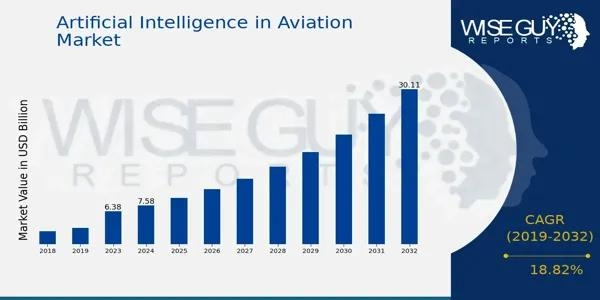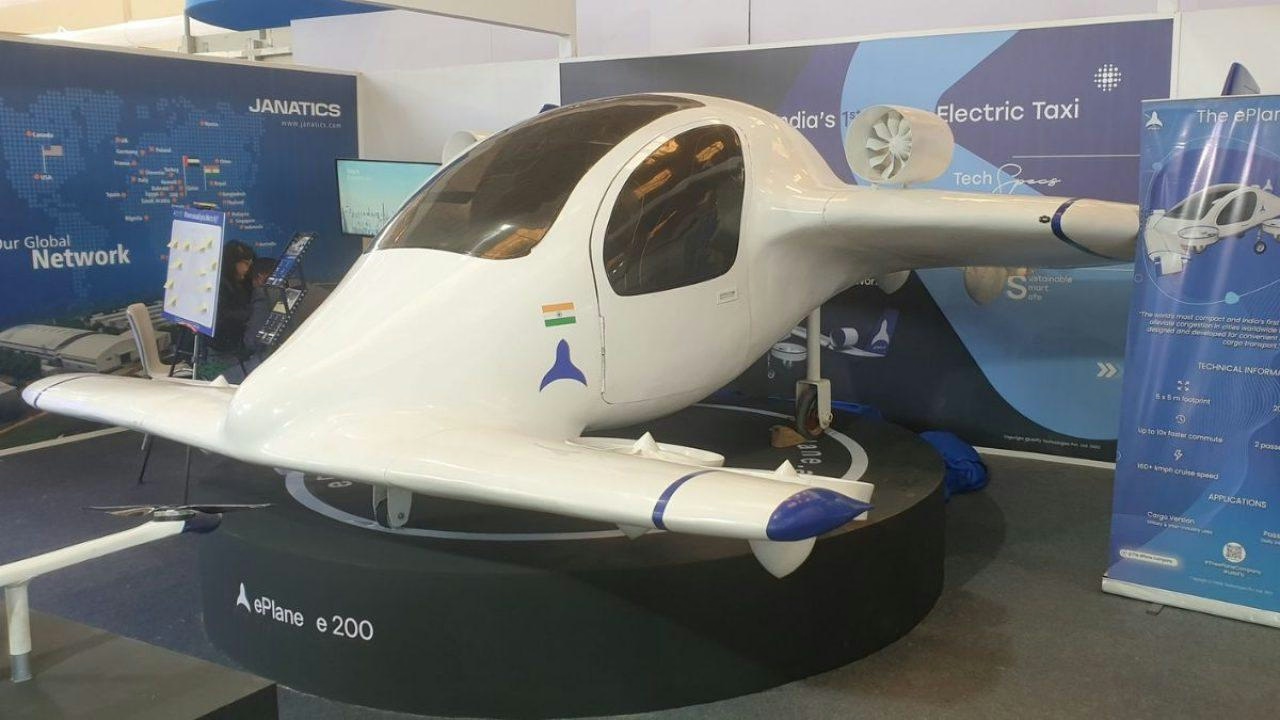أيروجيني — مساعدك الذكي للطيران.
الرائج الآن
Categories
Artificial Intelligence in Aviation Market Projected to Reach $30 Billion by 2032

Artificial Intelligence in Aviation Market Projected to Reach $30 Billion by 2032
The global Artificial Intelligence (AI) in aviation market is poised for significant expansion, driven by the industry's pursuit of safer operations, enhanced efficiency, and improved passenger experiences. Airlines, airports, and aerospace manufacturers are increasingly integrating AI-powered technologies to optimize predictive maintenance, streamline operations, and elevate customer service standards.
Recent market analysis indicates that the sector was valued at $6.38 billion in 2023 and is expected to grow to $7.58 billion in 2024. Projections suggest a surge to $30.1 billion by 2032, representing a compound annual growth rate (CAGR) of 18.82% between 2025 and 2032. This rapid growth reflects AI’s pivotal role in addressing the aviation industry's escalating operational complexities, stringent regulatory requirements, and evolving passenger expectations.
Market Drivers and Core Functionalities
AI’s transformative impact in aviation is evident across several key areas. Predictive maintenance, enabled by AI analytics, allows real-time monitoring of aircraft systems to anticipate failures before they occur, thereby reducing unscheduled maintenance and operational downtime. Operational efficiency is enhanced through AI-driven optimization of flight schedules, air traffic management, gate assignments, and crew deployment, which collectively minimize delays and maximize asset utilization.
Passenger experience is also being revolutionized by AI applications such as chatbots, facial recognition technologies, and personalized in-flight services, all contributing to higher customer satisfaction and loyalty. Furthermore, AI plays a critical role in safety and security by supporting threat detection, anomaly recognition, and cybersecurity measures that protect both digital infrastructure and physical assets.
The core AI functionalities underpinning these advancements include machine learning for fault prediction, computer vision for surveillance and baggage handling, natural language processing for automated customer support, automation in air traffic control and ground operations, predictive analytics for fuel management and routing, and the use of digital twins for simulation-based maintenance planning.
Regional Outlook and Industry Leaders
North America currently leads the AI in aviation market, propelled by substantial investments, advanced technology adoption, and the presence of major aerospace corporations in the United States and Canada. Europe is experiencing growth driven by sustainability initiatives, regulatory support, and the deployment of AI technologies in airports and maintenance facilities. The Asia-Pacific region is anticipated to be the fastest-growing market, fueled by increasing air travel demand, airport modernization efforts, and the rise of technology-forward carriers in China, India, and Southeast Asia.
Prominent companies shaping the market include Airbus, Boeing, GE Aviation, Honeywell Aerospace, IBM, SITA, Collins Aerospace, Microsoft, NEC Corporation, Thales Group, and AImotive. These firms provide a broad spectrum of solutions encompassing predictive analytics, computer vision, AI infrastructure, and integration services. Strategic partnerships with airlines, airports, and regulatory bodies are expanding their influence and market penetration.
Challenges and Industry Response
Despite the promising outlook, the AI in aviation market faces several challenges. Regulatory complexities, concerns over data privacy, and the substantial investments required for infrastructure and workforce training present significant obstacles. In response, both established aviation entities and emerging technology startups are intensifying efforts through partnerships, acquisitions, and accelerated research and development to sustain competitive advantage.
The anticipated $30 billion market valuation by 2032 underscores not only the potential for groundbreaking innovation but also the imperative for strategic planning and cross-sector collaboration. As AI adoption deepens across flight operations, airport management, and maintenance, the aviation industry is set to transition from traditional automation toward intelligent ecosystems that redefine safety, operational efficiency, and the passenger experience.

Archer Aviation Partners with NVIDIA to Advance Aviation AI Technology

Chennai Startup to Develop India’s First Electric Air Taxi

Factors Positioning Airbus for Leadership in 2026

Emirates Unveils Cabin Design for New Boeing 777X

Eighteen Years On, the Airbus A380 Remains Central to a $34 Billion Airline

How a boom in luxury airline seats is slowing down jet deliveries

Navitaire Outage Attributed to Planned Maintenance

Airbus Plans Record Delivery of 870 Aircraft in 2026

DigiYatra Debuts Outside Aviation at India AI Impact Summit

Vietnam Orders Strengthen Boeing’s Commercial Outlook
